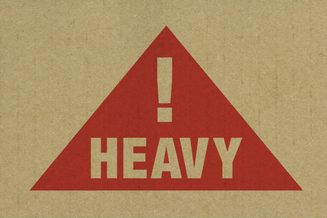
"This commandment that I command you today - it is not hidden from you and it is not far. It is not in Heaven...Nor is it across the sea...Rather, the matter is very near to you..." (Deuteronomy, 30:11-14)
"This commandment," according to the commentaries, refers to the entire Torah: to love our fellow, not hold grudges, love and fear the Creator, be honest in our all affairs, and obviously much more. Is the Torah suggesting that this vast undertaking is not hard - "it's very near"? How?
Here's the parable the Dubno Maggid (Rabbi Jacob Kranz, 1741-1804) offered to explain this verse.
Fishel the beggar is passing the home of the wealthy Zalman.
"Fishel, my dear," says Zalman as he walks up the stairs to his house, "bring my package inside for me and I'll pay you a gold coin."
Fishel eyes the packages at the curb and begins schlepping a large box. Heaving from exertion, he enters Zalman's foyer and calls out, panting, "Zalman, I’m here. Where do you want it?"
Zalman's responds from an unseen room, "Fishel, I’m afraid you've brought the wrong package."
"What?! How can that be?" cries Fishel. "And how would you know - you can't even see me."
"I don't need to see you," replies Zalman. "I can hear you. I know you've brought the wrong package because mine is light."
According to the Maggid, the Torah is not telling us that our job in this world is easy. It's telling us that the job God intended for us is light, not heavy; simple, not confounding; accessible, not despairingly remote. When our life and our job look heavy, it’s evidence of a mistaken perspective, “a spirit of insanity” as the Talmud calls it. And part of our job is to gain understanding about the nature of our job.
Let’s say my wife and I don’t see eye to eye about one of our child’s needs. I might feel stuck. I’m responsible for my child. I feel clear that my perspective will bear fruit and hers won’t. I anticipate resistance from my wife, followed by conflict, followed by the possibility of losing my composure. Projections about the future multiply in my brain faster than a super computer till I feel and express judgment and resentment. In that moment my job looks heavy, confounding, and remote. How in the world am I going to change her and myself (and not my marital status)?
According to the Dubno Maggid, the Torah is telling me something about that. It’s the wrong package; put it down.
That story with my wife actually happened recently. I did lose my cool and spent several days stewing over what looked like an impossible situation. But I know too much to camp out in the blame and resentment. Even as I flirted with the upset and critical feelings, I knew they weren’t “true.” I knew those feelings were not coming from my wife or anything in the world God made; it was a “spirit of insanity.” To me, that’s the “putting down the wrong package”: not laboring to fix something that’s not real.
I kept my distance, tried to be cordial and helpful without forcing anything, and at some point, unburdened by the heavy job, I reset. I apologized. So did she. We reaffirmed our desire for a warm and compassionate connection. It was nice. The conversation about how to best help our child looks different – lighter – now.
I’m not suggesting that in an upset state I magically become exempt from my child’s needs: “Not my job; I’m angry now.” I’m always responsible. But responsibility begins with recognizing my inability to attend to my responsibility. When it looks heavy, my job is to back off.
The holy days that are upon us carry great potential for growth and accomplishment. It’s not uncommon that we feel pressure about the holidays: so much to do, so many changes to make – where do I begin?
We begin with the reminder that the job God designed for us is light and yet it’s normal to get lost in a job that feels heavy. Preferring the light job and backing off the heavy is in my mind the most leveraged growth in the coming year.

 RSS Feed
RSS Feed